If America Was Actually Serious About Increasing Breastfeeding Rates, It Would Address the Post-Partum Treatment of Mothers
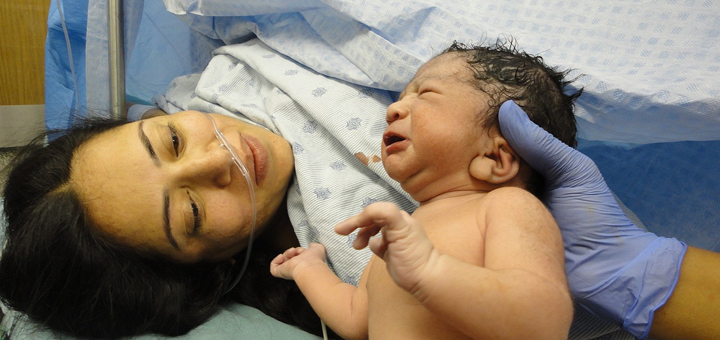
America is full of ideas on how to get more new mothers to breastfeed. Most of the ideas, unfortunately, are a hodge-podge of well-intentioned, but poorly executed schemes that focus not on the actual hurdles to breastfeeding but rather on the “big bad formula industry” (Big Forma? You heard that here first).
For starters, let me unequivocally state that I am not a proponent of exclusive breastfeeding in all cases. I am a fearless formula feeder and a staunch defender of choice. I believe each family should determine what works for them, and be supported regardless. That being said, I fully support those mothers who want to breastfeed, and think they should have our support as well. Frankly, I believe the most serious detriment to our mothers is not the method by which they are feeding newborns but rather how our nation treats them after delivery. It is this that I believe is the single biggest hurdle to optimal maternal and newborn health, and, as a by-product, the largest obstacle in breastfeeding. Put simply, unless America addresses the core issues of post-partum care for women, especially leave and post-partum depression, it will never see the breastfeeding rates that it currently strives to attain.
Most Americans, and most new mothers, are certainly aware of the glaring lack of paid maternity leave in the United States. But this failure becomes alarming when compared on a global scale. Generally speaking, the United States is the only industrialized country in the world that does not offer paid leave to new mothers. This statistic becomes even more grim when you understand that women make up approximately half of America’s workforce. Clearly, it does not require much reasoning to assess the physical and mental toll that giving birth has on new mothers. They are healing from pregnancy, suffering from a lack of sleep, and, thanks to these antiquated leave laws (or lack thereof) forced to return to work before they are physically and mentally able. It therefore requires even less reasoning to surmise that this factor, above all others, likely carries the most influence for feeding decisions. Feeding from the breast is only feasible if the mother is available 24/7. When mothers have to return to work, breastfeeding only becomes doable if they pump and leave the breastmilk with the daycare provider. Despite the advancement of laws otherwise, many of these mothers are forced to pump in bathrooms or dirty closets. How is this safe, sanitary, or sane? We collectively bombard mothers, admonishing them to breastfeed, and then follow through with conduct that ultimately makes them fail this task. But instead of dealing directly with possibly the most influential factor to breastfeeding -employment and leave- we continue to skirt around the issue, making negligible and often punitive changes, like keeping formula companies from marketing to low-income women.
Indeed, the CDC published a study this year confirming that women who had maternity leave had higher rates of initiating breastfeeding and higher rates of breastfeeding at six months than women who did not have this leave. What is interesting about this study is not the results, which should be patently obvious to every person in America by now. The interesting thing is that the numbers have not changed in the last ten years, despite an overly aggressive breastfeeding campaign, including the aforementioned Baby Friendly Hospital Initiative. For example, look at the number of women who are breastfeeding at 6 months depending on leave (approximately 24.9 % to 50.1%). In 2006, a different study found that mothers who were not working full-time had twice the exclusive breastfeeding rates of mothers working outside the home. Thus, ten years later, the statistics still show that working women breastfeed at half the rate of women with leave or not employed, despite the rampid “breast is best” campaign that has been employed over the last decade. Admittedly, this is not an apples-to-apples comparison as the recent study deals with leave intervals and the prior study with general employment. But two clear inferences can be drawn from these studies: 1) full-time employment, without leave, affects breastfeeding rates and 2) palliative policies alone, without addressing maternity leave, fails to increase breastfeeding rates beyond a negligible amount.
Of course, leave does not only affect breastfeeding rates. It is a necessity for the mental health and physical well-being of the mother. Another study, done in 2012, highlights that mothers who have less than eight weeks of paid leave after birth are more likely to have increased depressive symptoms and an overall reduction in health. Despite this, Americans continue to insist that paid maternity leave is a luxury and akin to a vacation. Any new mother can attest that the first few weeks after birth, filled with sleepless nights, hazy days, constant feeding, diapering and burping, and endless fatigue is anything but a vacation. On the contrary, it is a breeding ground for post-partum depression, yet another rarely discussed side-effect of birth that affects not only the mother’s health but the baby’s, as well as the breastfeeding rate.
In fact, one out of seven women will suffer from post-partum depression (“ppd”) after childbirth. This includes the nearly 80% of women who will experience a lesser depressive state, known as the “baby blues”, after childbirth. About twenty percent of postpartum deaths occur from maternal suicide. Post-partum depression (and its’ lesser mentioned partner, post-partum anxiety) is, put bluntly, nothing short of a major public health crisis.
It is here I would argue that breastfeeding is both a cause and an effect. The high pressure to breastfeed after birth, especially after long labors or c-sections, coupled with fatigue and other post-delivery complications, can cause ppd, particularly if the mother is having difficulty expressing milk or if the infant is having problems latching. It is also likely exacerbated by the extreme fatigue that new mothers suffer, particularly in the immediate week following birth and worsened by these very same punitive breastfeeding promotion policies like the BFHI that eliminate well-baby nurseries.
Unsurprisingly, it is difficult to find studies that make this correlation, likely for fear of backlash for implicitly stating the obvious, namely that breastfeeding can cause ppd. However, some studies show just that, noting that there is an increased prevalence of ppd in women who had difficulties in the first two weeks breastfeeding and that women who disliked breastfeeding were 42% more likely to have ppd at two months post-partum.
Despite this information, the obvious health risk of ppd is swept under the rug, even though the American Academy of Pediatrics has acknowledged that depressed women have a greater tendency to discontinue breastfeeding. These very same women, who need mental health support, are hesitant to get the help they need, and take anti-depressant medication, because they are fearful of stopping the very thing that may be contributing to the depression. Even more distressing, this failure to seek pharmacological help is based on faulty information, as it has been medically determined that the use of most antidepressants are generally safe for the baby. There almost seems to be a co-morbid fear between new mothers and proponents of breastfeeding; new mothers are afraid to seek help and suffer in silence, sometimes with detrimental results, simply because they do not want to be “bad mothers” and quit breastfeeding. Overly zealous breastfeeding proponents are hesitant to tell these mothers that their anxiety and depression may be caused or contributed to by their refusal to do anything other than breastfeed, and continue to offer unsupported platitudes like breastfeeding allegedly creating a love hormone that cures depression. In case it is not obvious, this is a zero sum game. The biggest loser is the infant, who is suffering the effects of a severely depressed mother, including physiological stress and general development.
The sad part is that it does not need to be an all-or-nothing proposition. If we could open real dialogue about the emotional and mental state of mothers following childbirth, investigate the causes and stressors of ppd, and provide adequate care and treatment to these women without creating a negative stigma, we could greatly improve one giant piece of the post-partum pie. Like addressing leave, tackling this other major health issue would be a boon for all women, and would probably dramatically improve breastfeeding rates far beyond what current campaigns have done.
Simply put, “big forma” is not the cause of America’s breastfeeding rates. Neither are hospital freebie bags, formula marketing for low-income women, well-baby nurseries, or pacifiers. Proponents will argue otherwise, but eliminating these things, other than being punitive and penalizing for women, does little to change these rates, because it is like putting a band-aid on a gaping wound. If America really wanted new mothers to embrace breastfeeding, it would address the issue that matters the most: how women are treated after they have given birth to the baby.
Wendy Marcus
I am mediocre mom!
Latest posts by Wendy Marcus (see all)
- THE ROAD TO HELL IS PAVED WITH LEGOS - April 25, 2017
- Examining Equality in the Practice of Law: The Scales of Justice are Still Not Balanced - April 8, 2017
- Dear America:I think it’s time to consider a divorce - January 26, 2017

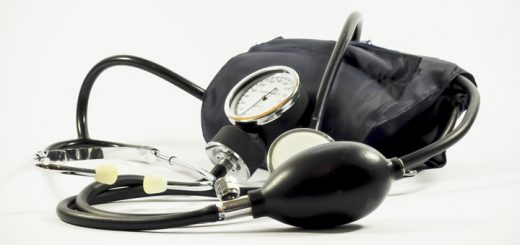








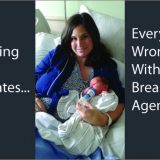



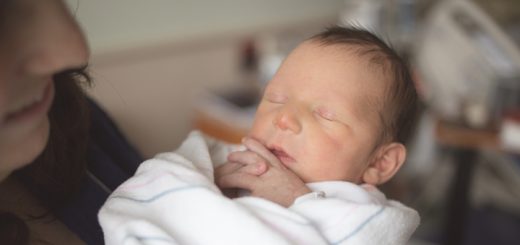
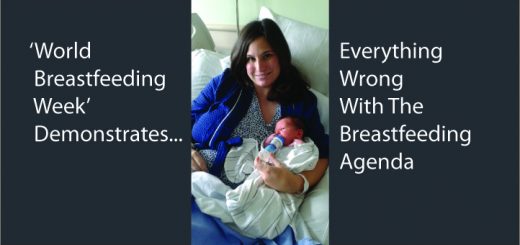

You’re singing to the choir here! I wonder how many other women had this same experience. Yesterday was my daughter’s one year old birthday. And as another mediocre mom, I cried and had flashbacks all day of L&D. I was so upset I didn’t even want to give her a hug. I felt selfish, and once again failed again…. Thanks BFHI for giving me PPD and now PTSD! (I felt a bit better and tried to make it up to her today. I also wonder if this is going to be a thing on her birthday from now on.